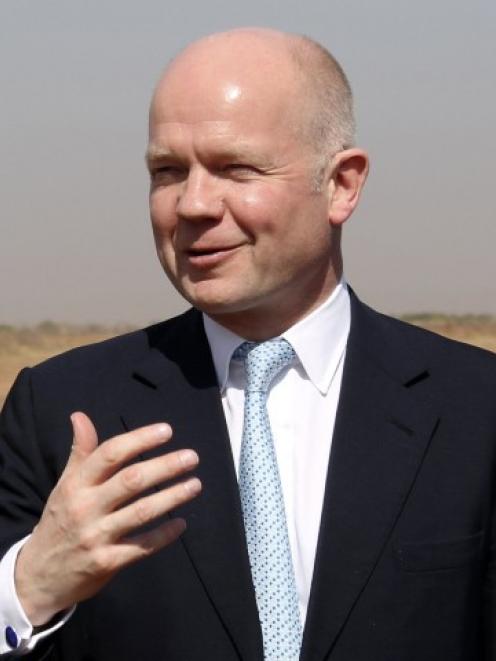
In his strongest comments yet on the conflict in Syria, Foreign Minister William Hague said international policy on Syria had been an "abject failure", saying the chances of an immediate solution to the two-year crisis were slim.
"In our view if a political solution to the crisis in Syria is not found and the conflict continues, we and the rest of the European Union will have to be ready to move further, and we should not rule out any option for saving lives," Hague told parliament.
But he played down the prospect of direct Western intervention adding: "No Western government is advocating military intervention of Western nations into the conflict in Syria. The discussion is entirely focused on the degree of assistance that can and should be delivered to the opposition."
However, Hague's promise of greater aid - which also included search and rescue kits, communications equipment, body armour, waste incinerators to prevent disease, and advice and training - represented a step-change in British policy reflecting London's frustration with the pace of change on the ground.
Hague said on Sunday Britain did not rule out arming the rebels in the future, and on Wednesday appeared to underline that possibility by saying Britain could act alone if embargo amendments could not be agreed with the European Union.
The embargo does not allow the EU to arm the rebels, and while armoured four-wheel-drive cars are a significant jump in British assistance, all aid pledged so far has been non-lethal.
Gulf states are believed to have already been supplying arms to the opposition, who are outgunned by Syrian President Bashar al-Assad's forces, and on Wednesday the Arab League allowed Arab military support to the rebels.
Hague said Britain was "increasingly concerned" about Assad's willingness to use chemical weapons, and would also give rebels equipment that would allow them to gather evidence in the event chemical weapons were used.
"CATASTROPHIC PROPORTIONS"
He said the conflict had reached "catastrophic proportions" and indicated that Britain was willing to take "any domestic measures" if the 27-member EU could not agree further amendments to sanctions on Syria, which roll over every three months.
More than 70,000 people have been killed and 1 million refugees have fled the conflict, which started as pro-democracy protests but has turned into a sectarian war between rebels mainly from Syria's Sunni Muslim majority and state forces defending Assad, who follows the Alawite faith derived from Shi'ite Islam.
Although Hague did not rule out a political solution to the crisis, he said it was clear Assad was gambling on a military victory against his opponents.
"What we face is not a choice between diplomacy on the one hand and practical assistance on the other: helping the opposition is crucial to bringing about a political transition and saving lives, and both must be pursued together," he said.
A Syrian rebel leader sought to persuade European governments on Wednesday to lift the arms embargo, saying any weapons provided would be accounted for and possibly returned.
Assad-ally Russia has blocked diplomatic efforts for strong U.N. Security Council measures against the Syrian president, and Hague met Deputy Foreign Minister Mikhail Bogdanov on Wednesday. Britain's Foreign Office gave no details of the outcome.
Hague was also expected to meet U.N. Syria mediator Lakhdar Brahimi on Wednesday and Russian Foreign Minister Sergei Lavrov next week.











